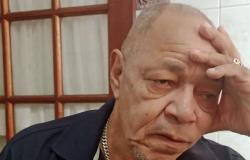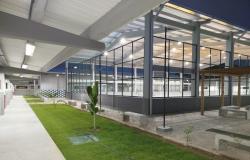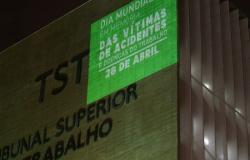The transition from the civil-military dictatorship to the New Republic in the 90s could have been a period of review of the authoritarianism embedded in Brazilian society since its formation. However, the authoritarian traits, exacerbated throughout the dictatorship, are legacies that the country carries to this day.
Behind the validity of these traits, there is a society and governments that refuse to come to terms with the past. Recently, the President of the Republic, Luiz Inácio Lula da Silva (PT), stated that he cannot “always dwell” on the dictatorial past, when asked about the cancellation of the 60th anniversary ceremony of the 1964 coup, planned for the day April 1st this year.
“What I can’t do is not know how to move history forward, always keep rehashing it, in other words, it’s a part of Brazil’s history that we still don’t have all the information about, because there are still people missing, because there are people who can find out. But, honestly, I’m not going to dwell on it and I’m going to try to move this country forward”, he said in an interview for the program It’s Newsfrom the TV network!.
Students and workers formed one of the resistance fronts throughout the dictatorship / National Archives/Correio da Manhã
Ivo Lebauspin, who was arrested and tortured during the dictatorship, states that “it is a mistake not to work on the memory of the dictatorship”. “There is a narrative that it is better to reconcile with the past and forget what happened. This is impossible without knowing what actually happened”, says the sociologist.
“Some people think that in order to move forward on a political level, it is necessary to sweep these things under the carpet, throw a stone over the past, go ahead and make agreements. This has already been done. This has been done for years. Since the At the end of the military dictatorship, the military dictatorship is not analyzed, it is not judged, nothing is done”, he argues.
Lebauspin associates, for example, the military presence in the coup attempt to keep Jair Bolsonaro (PL) in the Presidency as a remnant of the military intervention. “It has everything to do with not remembering the dictatorship and not judging. In Germany there is a monumental effort to always remember everything that happened. There are Holocaust museums in various parts, and people know what happened. There was a trial, the facts were analyzed and judged. That didn’t happen here.”
In the same vein, the professor at the Department of History at Universidade Federal Fluminense (UFF), Daniel Aarão Reis Filho, states that he remembers “leaders of progressive parties, like Tancredo Neves in 1985, calling on people not to look in the rear-view mirror, but to look forward and not dwell on the wounds”. This shows that Brazil “devoted little attention to reflecting on the State structure set up during the dictatorship and its policies”.
Armed forces
As a result, authoritarian traits not only from the period of the military dictatorship, but from other governments, such as Getúlio Vargas’ Estado Novo and the slavery period, continue to be present in Brazilian society. Among these legacies, the professor lists the autonomy of the Armed Forces. “They are a true State within a State. They have their own educational structure and specific justice. This has allowed the Armed Forces to cultivate ideologies that are increasingly anachronistic, but very valid within the Armed Forces.”

Students arrested at the UNE Congress in Ibiúna in 1968 / São Paulo State Public Archive
The professor explains that only after the government of Dilma Rousseff (PT) — and still timidly — were efforts made to review this military structure, mainly with the creation of the National Truth Commission (CNV), on November 18, 2011. Still thus, Aarão states that “there was a kind of pact: we don’t mess with you, you don’t mess with us. This pact in the illusory hope that, over time, the wounds would be healed”.
A year after the commission’s closure, which took place in 2014, researcher and member of the CNV, Lucas Figueiredo, stated that the final report with 4,328 pages was “very weak”.
“The child’s father is Tancredo (Neves), who openly says he won’t investigate. (José) Sarney came in sold because he was very weak, he leaned on the military. Then Collor and Itamar turn a blind eye. FHC and Lula put the Union to combat the opening of files in court, which is a more serious stance. And you have Dilma, who is absolutely passive, because the Armed Forces blatantly lied to her during the CNV and she did nothing”, he said in interview with the BBC at the time.

Soldiers on the streets during the dictatorial period / Memoirs of the Dictatorship
This passivity on the part of consecutive governments was added to the articulation of the extreme right within the barracks, which gained ground mainly after the military dictatorship. Professor Daniel Aarão Reis Filho states that the extreme right-wing tendency among the military “is very strong”. “Nothing tells us that this trend has been neutralized.”
“There was a general effort to transform the Brazilian Armed Forces, which were plural, into true monoliths. Military schools continue to intoxicate with Cold War, anti-communist theories that continue to feed that the military are the masters of civility and the saviors of peace , the guardians of the Republic. They set up an extremely unified, monolithic educational system, without pluralism and without a cult of legality. This is one of the legacies of the dictatorship that is extremely harmful to democracy”, says the UFF professor.
Capitalism
Another legacy that the professor lists is the process of social and regional inequalities. “The dictatorship propelled Brazilian capitalism to a higher level. Unlike the Argentine dictatorship, which pushed Argentine capitalism downwards, here in Brazil, capitalism took a leap forward, but at the cost of social inequality.”
Throughout the dictatorship, there was a rapprochement between the industrial and agrarian bourgeoisie, coupled with the participation of foreign capital in the economy, followed by economic dependence on hegemonic countries. In this scenario, the State acted to guarantee the demands and profits of the elites to the detriment of the rights of the working class, increasing economic inequality.

Police repression of workers demonstrating in ABC São Paulo during the 1979 strike / Public Archive of the State of São Paulo
The losses for the working class were observed in the decrease in wages; in the loss of land among rural workers due to the increase in large estates; and repression. According to the Inter-Union Department of Statistics and Socioeconomic Studies (Dieese), the minimum wage fell by around 40% between 1964 and 1974, going from R$2,142 to R$1,247, with correction for inflation and the different currencies that Brazil had over the decades.
In the UFF professor’s view, since then, Brazil has not been able to “radically reverse the course of social inequalities”.
“Brazilian capitalism continues, fundamentally, in the pattern of the model created by the dictatorship, in the hegemony of financial capital, which continues to suck our wealth through the interest on the public debt. Half of the Brazilian budget is destined to pay the interest on the public debt. There is a process of hegemony of the so-called market, fundamentally speculative, which does not stand out for productive investments, and this hegemony was established during the dictatorship”, he says.
Public security
Among other legacies, the professor cites the issue of security. “We have always had a tradition here in Brazil that the police, instead of protecting citizenship, repress citizenship. This scheme, which dates back to before the dictatorship, was greatly enhanced during and remained after it. There is the autonomy of the police military, the creation of these shock operations battalions, the infamous BOPES [Batalhão de Operações Policiais Especiais]who continue to barbarize the poorest populations”, he states.
In the same vein, Rodrigo Lentz, lawyer, professor of Political Science at the University of Brasília (UnB) and researcher at the Tricontinental Research Institute, states that public security in the country reveals “the maintenance of State terrorism, in cooperation between the Public Ministry , Judiciary and Security Forces, in a broad process of creating a crime of terror in Brazilian outskirts”.
This process involves “military police acting completely illegally and systematically violating the human rights of a certain social group, where democracy has not arrived from the point of view of democratic freedoms and individual guarantees.”

Maria de Belém Souto, at the funeral of her son, student Edson Luís, killed by the military dictatorship / Arquivo Nacional/Correio da Manhã
The researcher argues that the history of torture, summary execution, arbitrary arrests or falsification of criminal situations as acts of self-defense have legitimacy when there is execution by the State itself. “All of this is a record of our Republic. Torture as an institutional mechanism, above all, was implemented during the dictatorship of the Estado Novo, under the Vargas government.”
“The extermination policy as a public security policy began in the 1950s, when Amaury Kruel was the head of the Police Department of the Federal Capital. These were practices that already existed before, maintained during the dictatorship and today”, he states.
Lentz even relates this violent and authoritarian history to what is happening today in Baixada Santista with Operation Escudo, which killed 45 people in 36 days, between February 7th and March 14th. “There is a social legitimization, a production of a consensus, which leads society to legitimize this type of practice”, he says.
The governor of São Paulo Tarcísio de Freitas (Republicans) himself declared that he “doesn’t care” about the allegations of police lethality that were made to the United Nations. In 2023, the first phase of Operation Escudo killed 28 people between July 28 and September 5, in response to the death of a Rota police officer. The second phase of the operation killed one person every 19.2 hours.
Low-intensity democracy
Given this situation permeated by authoritarian legacies, it is necessary to question whether the Brazilian political regime constitutes itself as a democracy. “No society goes through 20 years of an authoritarian regime unscathed, considering the entire Brazilian historical formation. Some things structure the government, the State and society”, says Lentz.
The researcher argues that Brazil is “far” from the idea of democracy in the etymological sense of the word, as government of the people. “It is very far from what we experience in liberal pluralist democracies, where Brazil fits in best, which are democracies governed by elites, with electoral competition, with a system of a State subject to majority electoral rules and with guarantees of some individual freedoms selectively.”

Civilian being arrested by military personnel in Belo Horizonte, capital of Minas Gerais, on April 1, 1964 / Arquivo Nacional/Correio da Manhã
The idea of ”low-intensity democracy”, created by sociologist Boaventura de Sousa Santos, seems to fit the Brazilian case, according to the researcher. “Low-intensity democracy is characterized, above all, by low social participation. It is a representative democracy, but it does not count on social participation and therefore has low legitimacy”, he states. “The lower the social participation in the State’s institutions and decision-making, the smaller the reach of this democracy’s policies around its population.”
The researcher also highlights that this situation generates a type of “social disenchantment and legitimization of authoritarian solutions and solutions”, which urgently demands a structural change. “I wouldn’t say that we live in an authoritarian regime, but we also live with a very precarious and selective democracy. This is one of the reasons why it is permanently threatened by the extreme right today.”
A Datafolha survey from December last year showed that the number of people who say it doesn’t matter whether the country is a democracy or dictatorship has increased. In October 2022, the percentage was 11% among those interviewed. Last year, it rose to 15%. The number of respondents who consider a dictatorial regime acceptable under certain circumstances also increased: from 5% to 7%.
Editing: Matheus Alves de Almeida








